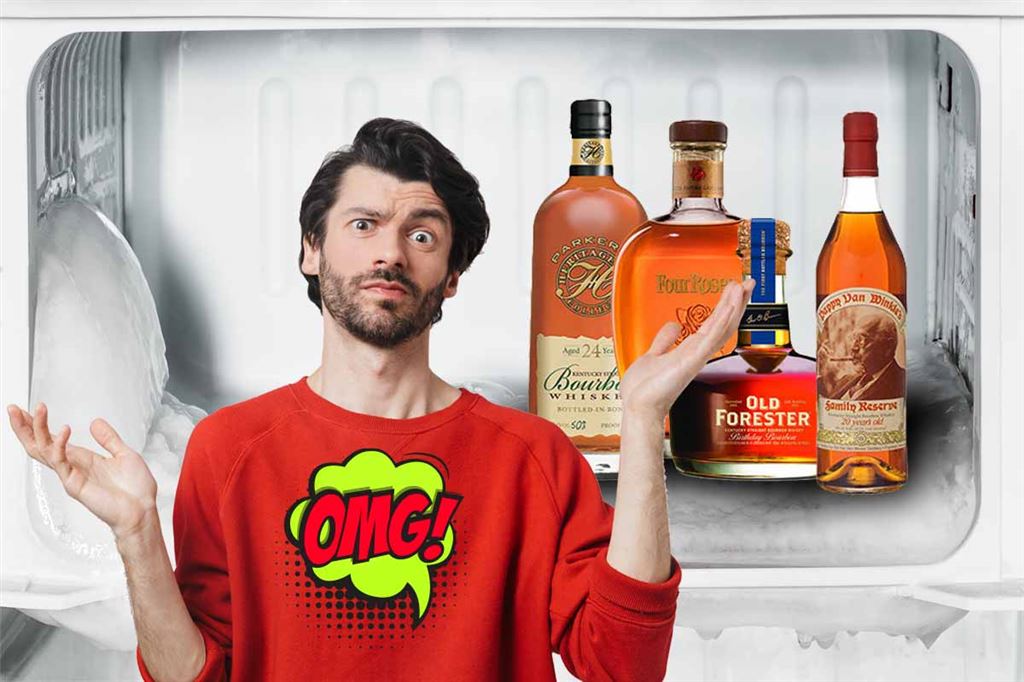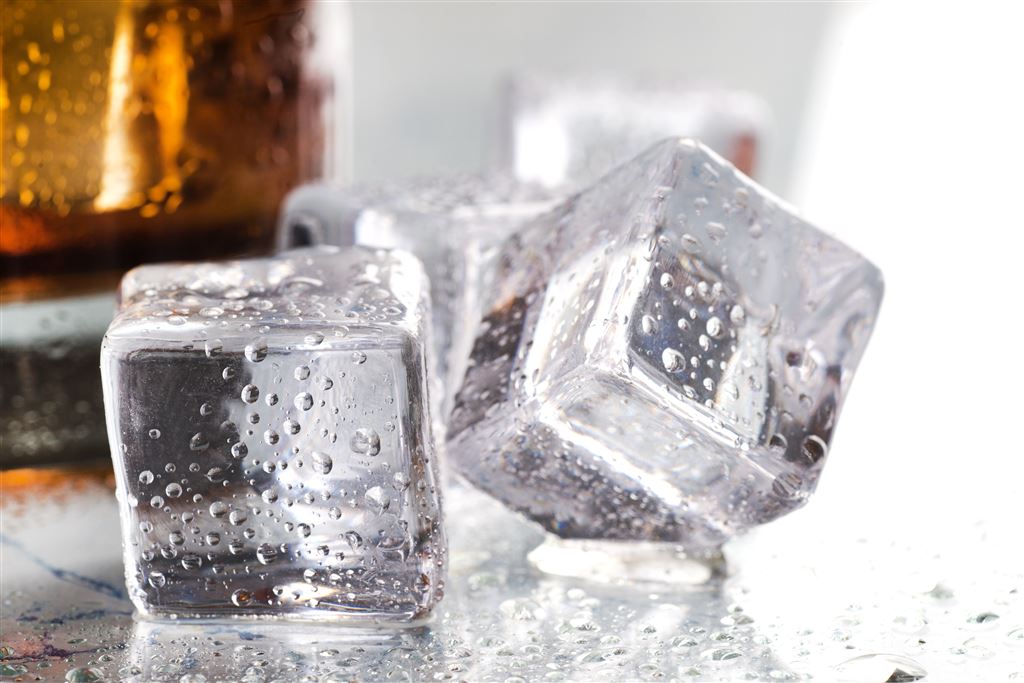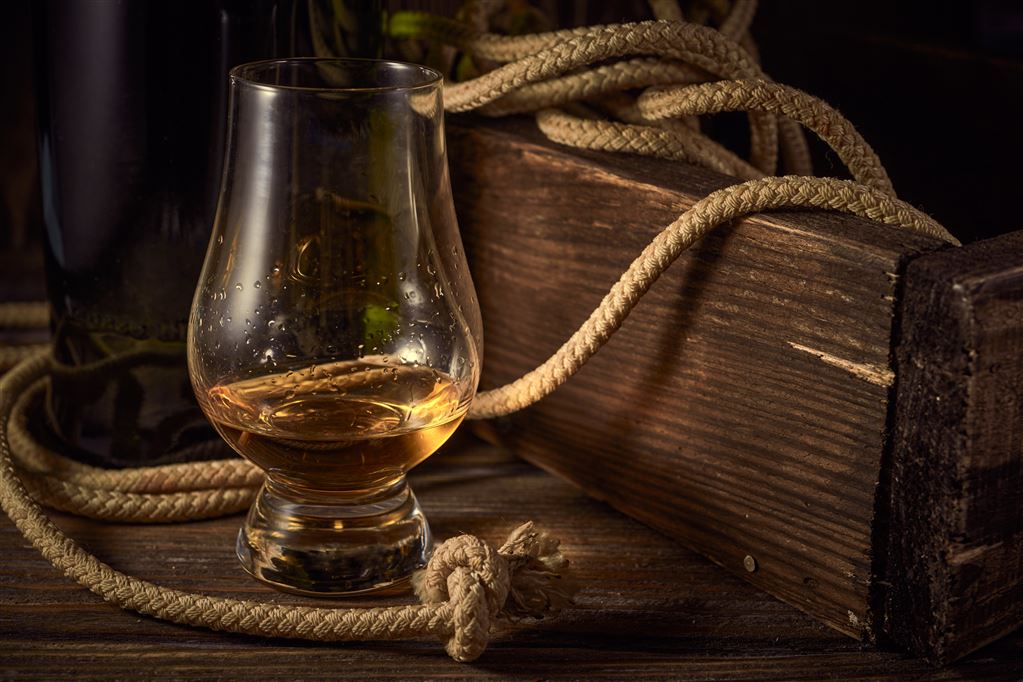Is there a right or wrong way to enjoy a fantastic American whiskey? Many bourbon drinkers are adamant about chilling their whiskey by adding ice, using cold whiskey stones, or putting their bourbon in the freezer. Should bourbon be chilled in these ways? Why not just, "Drink it how you like it?" This article will explore the science behind why drinking bourbon with ice or cold creates a bad drinking experience.

Personal Preference
Personal preference and tolerance for alcohol content play a significant role in some people's decisions to chill their bourbon or put ice in it. Some bourbon drinkers enjoy the effects of alcohol but cannot handle high proof levels. Using ice makes the spirit more palatable for them. Meanwhile, some people just prefer the taste of whiskey when it's cold.
There are compelling scientific reasons to reconsider drinking straight whiskey (not cocktails) cold or with ice, regardless of personal preferences.
"Drink it How You Like It?" The Science Behind Why Cold Bourbon is Bad
Science tells us that whiskey tastes worse when it's cold. But we freeze Vodka? Bourbons and other American whiskeys are not like Vodka. Vodka is much less complex than bourbon – having less flavor and aroma. So, you will not notice a discernible difference by freezing it. The same cannot be said for bourbons.
Bourbon is a complex spirit with a wide range of flavors and aromas that can be easily affected by temperature. When bourbon is chilled, the cold temperature numbs the taste buds and dulls the flavors, making it difficult to appreciate the nuances of the spirit fully. To truly savor the intricate notes of bourbon, it's best enjoyed at room temperature. Additionally, the colder a bourbon gets, the more noticeable the taste and aroma loss becomes. Whiskey gets thicker, more viscous, and loses even more flavor when it gets cold. Bourbon is meant to be enjoyed with its natural viscosity and mouthfeel, which can be disrupted when chilled. The oils and volatile esters in bourbon affect the overall drinking experience. These volatile esters are diminished when cold.
What are Volatile Esters?
Volatile esters are organic compounds that contribute to the fruity, floral, and spicy aromas in alcoholic beverages like bourbon. They are formed during the fermentation and distillation process when acids react with alcohols, creating esters through a process known as esterification. These compounds are responsible for the diverse flavors and aromas of bourbon, from the sweet and fruity notes to the more complex and nuanced profiles.
When whiskey is chilled, its volatile aromatic components (aromas) are reduced. Whiskey's flavor comes from a combination of what you smell (the aroma) and taste. Anything that affects the smell of whiskey will naturally alter its taste because our sense of smell is responsible for about 80% of our taste. The oils and esters in whiskey can solidify when exposed to cold, resulting in a worse nosing experience compared to experiencing it at room temperature.
Dilution Concerns
While some may argue that chilling bourbon can help mask any harsh alcohol burn, it's essential to consider the potential dilution issue. When bourbon is chilled or mixed with ice, the ice can melt faster and dilute the spirit, leading to a watered-down taste. This can significantly impact the balance and complexity of the bourbon, diminishing the quality of the drink.

The Advantages of Drinking Bourbon Neat
Drinking a whiskey "neat" means it's served at room temperature with nothing else added. No ice. No water. When you drink bourbon neat, you get the full flavor of the bourbon, and you can accurately evaluate its taste.
Master Distillers
When you drink bourbon neat, and at its bottled proof, you are drinking it the way the master distiller and his trained palate intended. Master distillers proof down bourbon to achieve the desired alcohol content. This process involves diluting the distilled spirit with water to reach the perfect balance of flavors and aromas. By carefully adjusting the alcohol content, master distillers can create a smooth and well-rounded bourbon that is enjoyable to drink neat.
If you cannot tolerate the proof content of a neat drink, purchase a whiskey with a lower proof. Purchase whiskeys between 80 and 90 proof. However, do not water it down or use ice.
Bourbon Reviewers
Bourbon reviewers evaluate whiskey in its original, unaltered state. They may occasionally add a drop of water to reveal additional flavors, but they never assess a whiskey's characteristics when it is cold or served over ice. This is relevant when you are making a purchase based on a review.

Conclusion
The science suggests that drinking bourbon cold creates an inferior tasting experience because it dulls flavors and aromas, making it harder to appreciate the spirit's complexity. When served at room temperature or with a few drops of water, the flavors are more pronounced, allowing you to savor the nuances of the bourbon fully.
By choosing to enjoy bourbon neat and at room temperature, you open yourself up to a world of heightened pleasure. You will discover that your tolerance for higher-proof bourbons increases, exposing you to more robust flavor profiles.